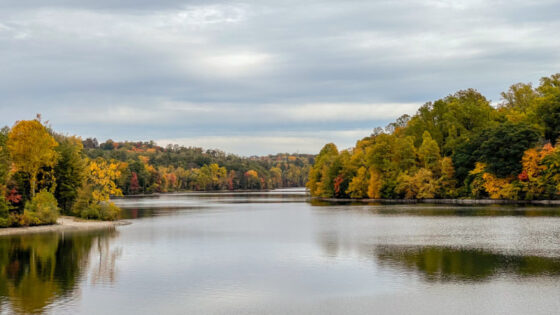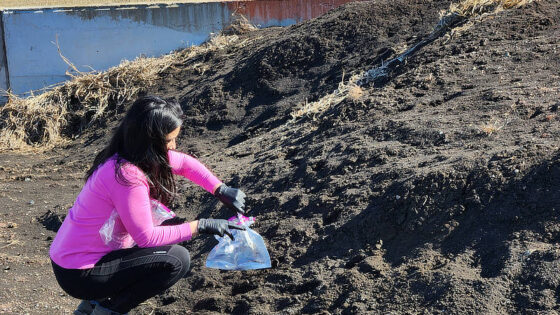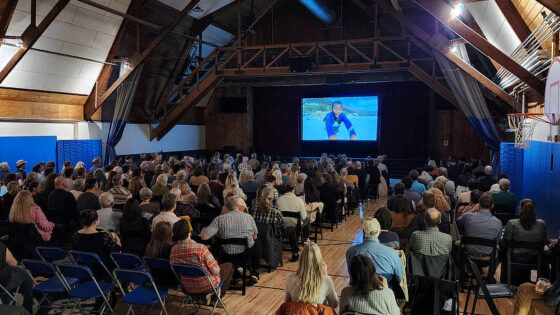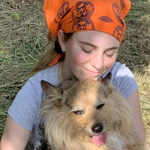 By Anabel Barnett, Development Department Intern
By Anabel Barnett, Development Department Intern
Navigating the Relationship Between Environmental Science and Policy
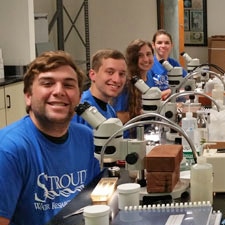
Fralick (left) with fellow interns in 2017.
Jeff Fralick and Stroud Water Research Center have had a long-standing and symbiotic relationship since he was a kid. “The Stroud Center has a significant presence in the Unionville community,” Fralick says, “so I first learned about the Stroud Center by simply being a member of that community.” While a student at Upland Country Day School, Fralick took several field trips to the Stroud Center, and eventually returned as an entomology lab assistant in the summer of 2017.
Internship Sparks Interest in Clean Water
As an intern, Fralick helped sort and identify macroinvertebrates found in water samples as a means of monitoring water quality throughout the Delaware River watershed. Fralick, then an Environmental and Sustainability Science major at Cornell University with no prior experience in entomology, was drawn to the internship because of the opportunity to conduct hands-on research, both in the laboratory and in the field-work component.
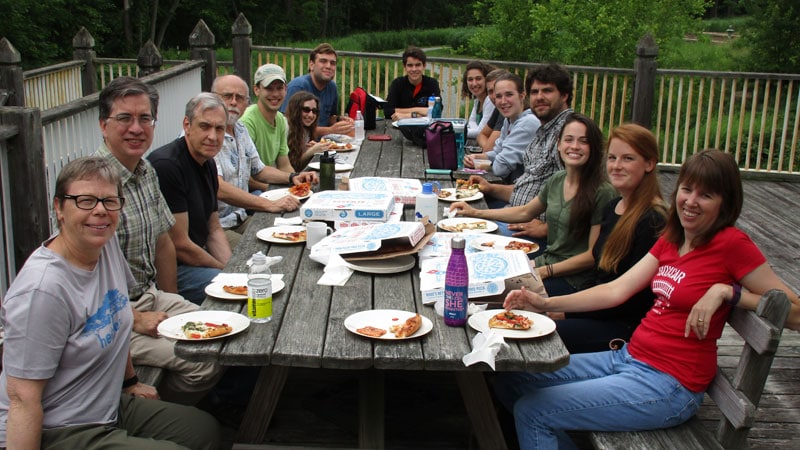
Entomology staff members and interns enjoying the end-of-summer picnic in 2017. From left: Sally Peirson, John Jackson, Sherman Roberts, Dave Funk, Matt Wilson, Sarah Vitale, Jeff Fralick, Matthew McGauley, Marisa Macchia, Adam Gochnauer, Rebecca Laurer, Mike Broomall, Kelly McIntyre, Katie McFadden, and Jan Battle.
It was here, he said, that he discovered his true passion for navigating the ever-changing relationship between environmental science and policy, in addition to clean water. Following his summer at the Stroud Center, Fralick enrolled in a year-long course that focused on the repeal and replacement of the 2015 Clean Water Rule.
“I was specifically interested in how this action would affect the protection of streams in Chester County, since some of our water systems would fall outside the scope of federal protection under the replacement rule,” he said. “Impaired water quality is already a huge issue across the country, and actions should be taken to increase protection, not roll them back.”
Fralick hopes to contribute to this cause. Just last May, he received a Master of Science in Sustainability Science from Columbia University, and has been interning with the New York State Office of the Attorney General in the Environmental Protection Bureau since last September.
Microplastics Research Cut Short By Pandemic
His passion for protecting water quality has followed him throughout graduate school, as well. He and a team from Columbia were in the process of studying microplastic concentrations in the Hudson River when the coronavirus pandemic hit and closed their research laboratory.
The team had hypothesized that microplastics were likely entering the Hudson River through New York City’s combined-sewage system, which can become overwhelmed during heavy precipitation events, and subsequently discharge untreated sewage and stormwater directly into the Hudson River. Wastewater treatment plants were likely another pathway for microplastics into the Hudson since the majority of wastewater facilities are not designed to filter out microplastics, he says.
While the team was unable to confirm or deny their hypothesis due to the lab shut-down, microplastics were indeed found in the samples that the team was able to analyze. Additionally, part of the research project involved the development of a DIY-style microplastics sampling method for citizen scientists to use in the Hudson River and elsewhere.
Advice to Young Environmentalists
As to his future plans, Fralick hopes to work for a government organization that combines his passions of environmental science and policy, like the Environmental Protection Agency or the National Oceanic and Atmospheric Administration.
When asked what advice he would give to young environmentalists interested in sustainability, Fralick advised students to keep up with current events. “The word ‘sustainability’ has garnered quite a bit of attention recently, which is great, especially as corporations continue to incorporate sustainable strategies into their operations,” he said of the growing cultural focus on sustainability and environmental issues.
“I would encourage you to closely follow the developments within the broader environmental science community, and keep a close eye on companies that practice, and not just preach, sustainability. Above all, keep learning, asking questions, and don’t be afraid to work outside of your comfort zone.”
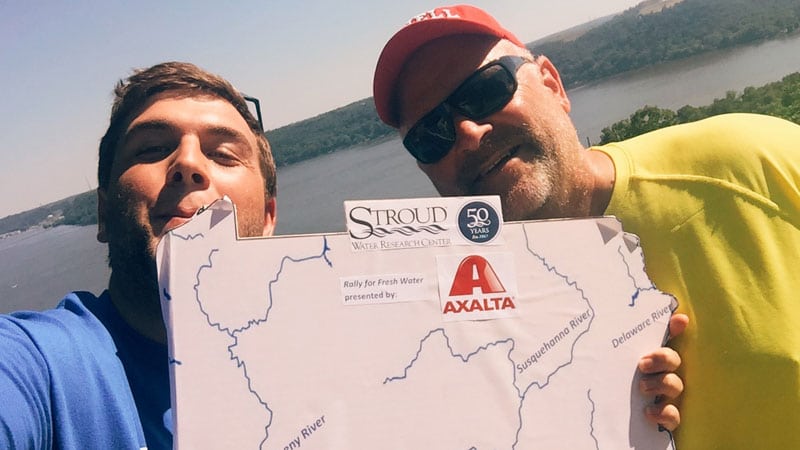
Team Fralick (Jeff and his father Jeffrey) took their passion for protecting water quality on the road in the 2017 Road Rally for Fresh Water to benefit the Stroud Center’s freshwater research, environmental education, and watershed restoration programs.

